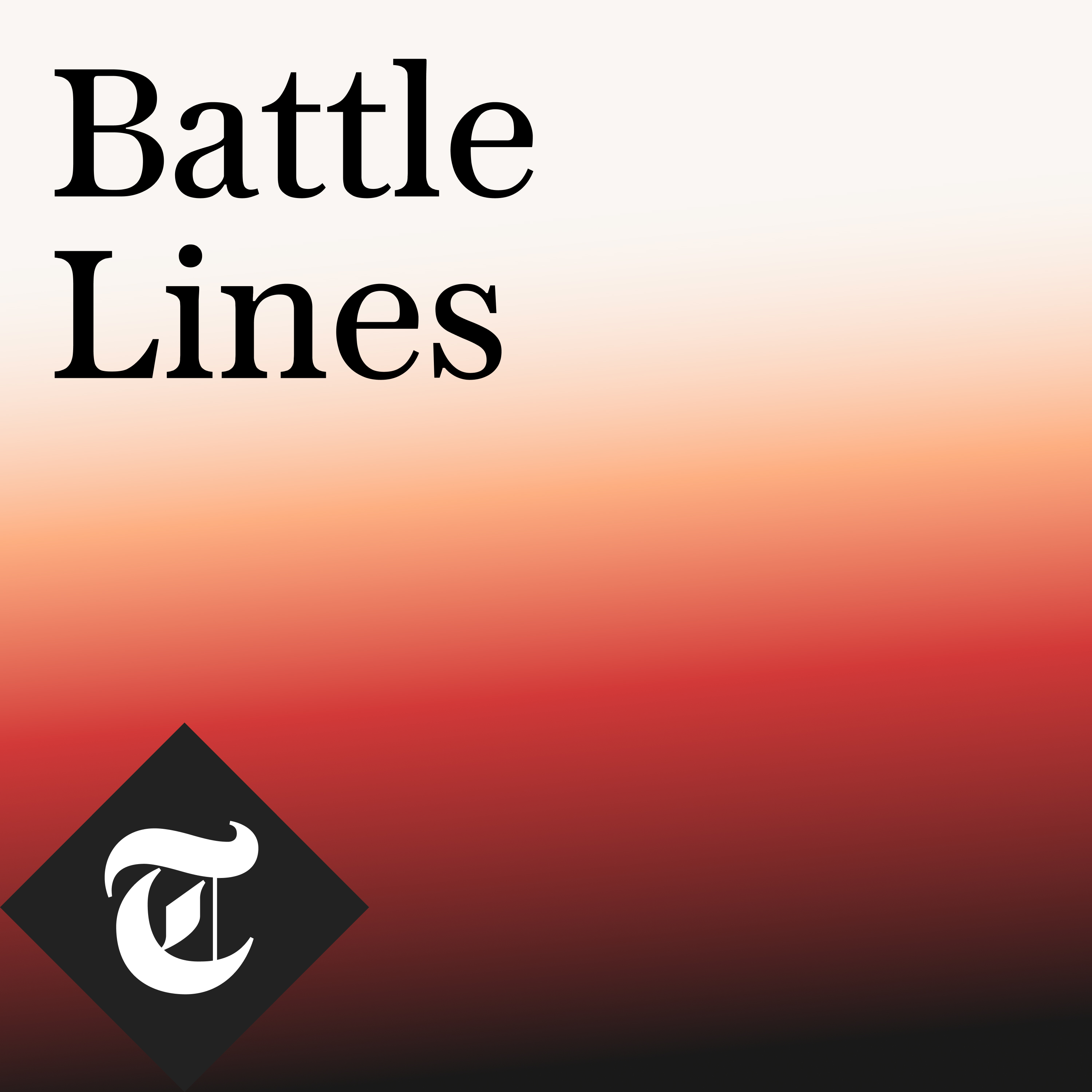
Battle Lines
<p>Battle Lines is The Telegraph’s defence, security and foreign affairs podcast. It offers expert analysis and on-the-ground reporting from around the world, everywhere from China and the United States to the Middle East and Europe.</p><br><p>Three times a week, veteran foreign correspondents Roland Oliphant and Venetia Rainey bring you on-the-ground dispatches from the world’s most volatile regions and informed analysis from world-class experts.</p><br><p>Every Wednesday on Battle Lines x Global Health Security they’re joined by Arthur Scott-Geddes to look at the intersection between health and security, from bioweapons to warzone diseases to frontline medicine. You can watch these episodes <a href="https://www.youtube.com/playlist?list=PLJnf_DDTfIVCaWbKZbRUi1KVej5VziwNy" rel="noopener noreferrer" target="_blank">here</a>.</p><br><p>Whether it’s the Russia-Ukraine war, the Israel-Gaza conflict, Chinese aggression in the Indo-Pacific, tensions between India and Pakistan, or the civil war in Sudan, Battle Lines covers the world’s most critical flashpoints with depth and clarity.</p><br><p>When will China invade Taiwan? Can Donald Trump bring peace to the Middle East? What should Europe do to help Ukraine beat Russia? Is Iran building a nuclear bomb? What is the point of NATO? Can the United Kingdom still defend itself? </p><br><p>Created by David Knowles, Battle Lines answers all these questions and more, bringing together the best of The Telegraph’s international, geopolitical, and conflict reporting in one place.</p><br><p>Don’t forget to follow and leave a review to stay updated on the latest in global conflict and foreign affairs.</p><br><p>Battle Lines: Global Health Security is supported by the Bill and Melinda Gates Foundation.</p><hr><p style='color:grey; font-size:0.75em;'> Hosted on Acast. See <a style='color:grey;' target='_blank' rel='noopener noreferrer' href='https://acast.com/privacy'>acast.com/privacy</a> for more information.</p>